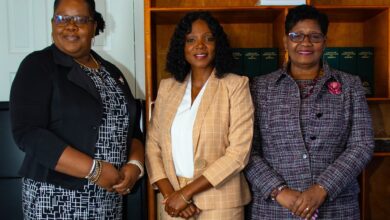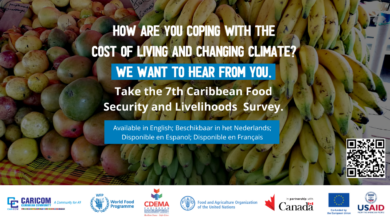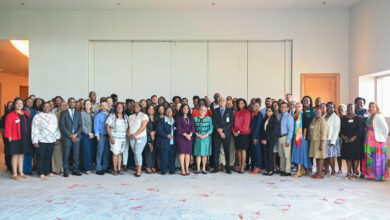Renews commitment to CSOs and NAPS integration in national HIV responses
The Pan Caribbean Partnership against HIV & AIDS (PANCAP) hosted a workshop on Knowledge Synthesis and Best Practices for over forty Caribbean leaders of Civil Society Organizations (CSOs) and National AIDS Programme (NAP) Managers. In general, the workshop which ran from 22 to 24 November, in Trinidad and Tobago, equipped participants with the necessary tools for sustaining HIV responses through improving efficiency, effectiveness and implementation of key strategies.
Its specific outcomes include: renewed commitment for the integration of CSOs into the national responses; recognition of the comparative advantage of CSOs in reaching key population groups; and improved relationships and enhanced collaboration between leaders of CSOs and NAP Managers. PANCAP anticipates that these outcomes will result in more effective advocacy for the sustainability of HIV programmes, beyond donor funding.
Speaking at the opening of the workshop, Hon. Terrence Deyalsingh, Minister of Health Trinidad and Tobago, stressed the critical importance of leadership and committed to championing the regional and global agenda for ending AIDS by the year 2030. The minister also underscored his support for the WHO and UNAIDS initiatives – ‘Treat All’ (‘Test and Start’) and the ‘90-90-90’ targets aimed for the year 2020.
The workshop engaged participants in applying knowledge management tools to HIV programme implementation, with particular regard to the ‘Treat All’ and the UNAIDS 90-90-90 goals. It affirmed the pivotal role of CSOs and NAP Managers in the HIV response and encouraged greater integration of CSOs into the national response to leverage their comparative advantage of reaching key population group.
It allowed for stronger and more effective collaboration between these two stakeholders to be fostered through a series of engaging knowledge management (KM) activities that enabled participants to share their success stories and best practices.
The workshop methodology included a ‘Knowledge Café’, which allowed group discussions on issues affecting the implementation of HIV programmes resonated with participants who viewed it as innovative and an ideal environment for participants to learn about the successful initiatives implemented by CSOs and National AIDS programmes.
Participants who required support to achieve greater success were able to generate a roadmap by discussing their challenges with those who had already crossed those hurdles. The face-to-face discussion was ideal for solving specific challenges by applying existing knowledge and experience while supporting collective learning, linkages, networking and stimulating new perspectives and new lines of inquiry.






